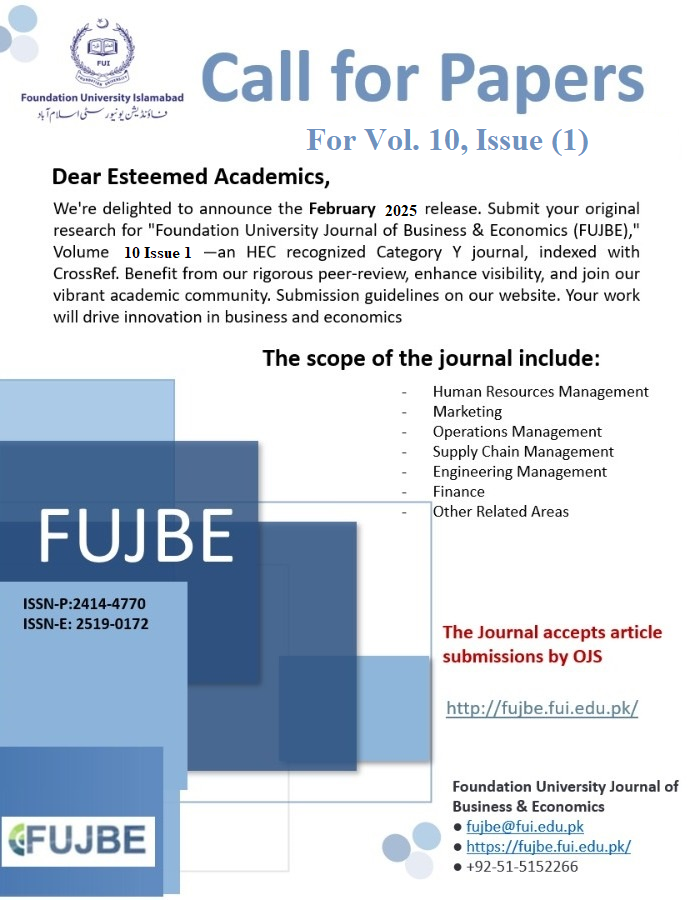Optimal Monetary Policy Transmission Mechanism for Economic Growth of Developing Countries
DOI:
https://doi.org/10.33897/fujbe.v8i2.808Keywords:
: Monetary Policy, Economic Growth, Developing Countries, GMMAbstract
This paper assesses the role of monetary policy on economic growth in selected developing
countries and empirically estimates a dynamic model for exploring the performance of monetary
policy in developing countries. The panel data is collected for 44 developing countries from 1974
to 2018. The analysis is carried out through the Generalized Method of Moment (GMM) which is
efficient to handle the problem of endogeneity and serial correlation. The results of monetary
indicators show that expansionary monetary policy is best suited for economic growth in
developing countries. The results of the money supply and banks reserve ratio suggested that
expansionary monetary policy is more appropriate for selected countries over contractionary
monetary policy. In a similar line, population growth performs a negative impact on economic
growth while the developing countries are labor-abundant, and analysis supports that the labor
force has a positive role in economic growth. Based on empirics, it is suggested that expansionary
monetary policy is more effective for economic growth and economic stability in selected
countries.



